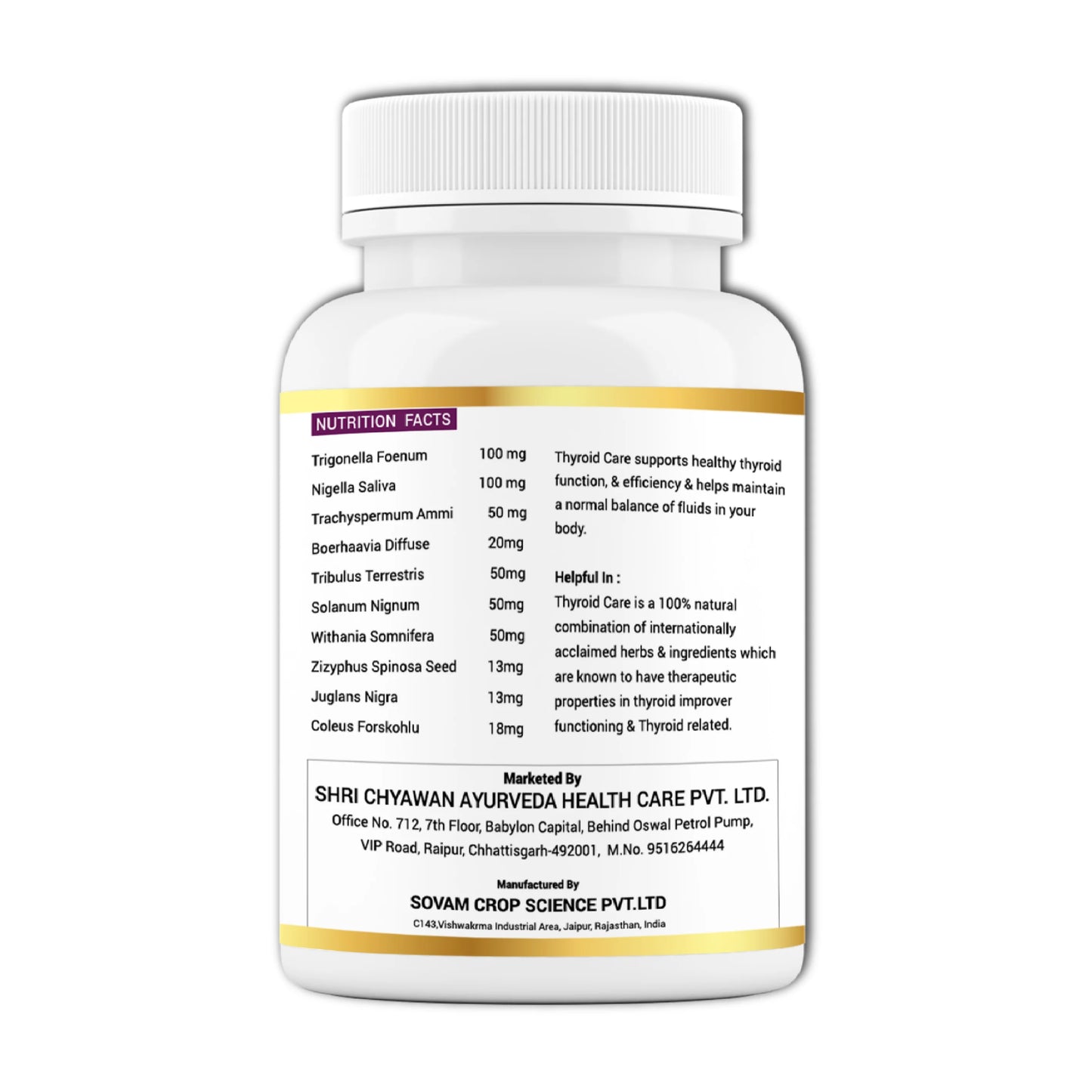The thyroid gland, a butterfly-shaped organ in your neck, plays a critical role in regulating your metabolism, energy levels, and overall health. When your thyroid function isn't optimal, it can lead to a variety of symptoms, including fatigue, weight gain, hair loss, and mood swings.
There are two main types of thyroid dysfunction:
- Hypothyroidism: An underactive thyroid that doesn't produce enough hormones.
- Hyperthyroidism: An overactive thyroid that produces too much hormone.
While medication is often the primary treatment for both conditions, there are several natural strategies that can support healthy thyroid function and potentially alleviate symptoms. However, it's important to remember that these are complementary approaches and may not be a substitute for medical treatment. Always consult your doctor before making any significant changes to your lifestyle or diet, especially if you're already taking medication.
Here are some natural ways to potentially control your thyroid function:
Diet:
- Eat a balanced diet: Focus on whole, unprocessed foods rich in fruits, vegetables, whole grains, and lean protein. These foods provide essential nutrients your body needs to function optimally, including your thyroid.
- Iodine: Iodine is crucial for thyroid hormone production. Include iodized salt in moderation and consider iodine-rich foods like fish (cod, tuna, salmon), seaweed, dairy products, and eggs.
- Selenium: This mineral plays a role in thyroid hormone metabolism. Include Brazil nuts, seafood, whole grains, and eggs in your diet.
- Limit processed foods and sugar: Processed foods and excessive sugar intake can contribute to inflammation, which may worsen thyroid symptoms.
- Cruciferous vegetables: While essential for overall health, goitrogenic vegetables like broccoli, cauliflower, and cabbage can interfere with thyroid function in some individuals, especially those with a history of iodine deficiency. Consider steaming them to minimize the effect.
- Gluten: Studies suggest a link between gluten sensitivity and thyroid issues. If you suspect gluten sensitivity, consider a gluten-free diet under a doctor's guidance.
Lifestyle:
- Stress management: Chronic stress can disrupt thyroid function. Relaxation techniques like yoga, meditation, and deep breathing can help manage stress and potentially improve thyroid health.
- Exercise: Regular physical activity can improve overall health and may positively impact thyroid function. Aim for at least 30 minutes of moderate-intensity exercise most days of the week.
- Sleep: Getting enough quality sleep is vital for overall health, including thyroid function. Aim for 7-8 hours of sleep each night.
- Reduce environmental toxins: Exposure to environmental toxins like heavy metals and certain chemicals can disrupt hormone balance. Use natural cleaning products, avoid processed foods with BPA, and consider air purifying plants in your home.
Natural Solutions: Shri Chyawan Ayurved's Thyroid Care Pack
Shri Chyawan Ayurveda offers a Thyroid Care Pack, a two-pronged approach for natural thyroid support:
- Thyroid Care Capsules: This herbal formulation is designed to promote healthy thyroid function and potentially help regulate hormone levels. The specific herbs used in the capsules are not disclosed by Shri Chyawan Ayurved, but some common Ayurvedic ingredients for thyroid support include Ashwagandha, Guggulu, and Kanchanar.
- Thyroid Care Syrup: This syrup aims to provide additional support for a healthy metabolism and address symptoms like fatigue and sluggishness. Again, the exact ingredients are not listed, but some possibilities include herbs like Amla (rich in Vitamin C), Licorice root, and Giloy (known for its immune-boosting properties).
Natural supplements can be helpful, but their effectiveness varies. Consulting your doctor is vital to ensure they don't interact with any medications you're taking and to determine if they're right for you.
FAQ:
-
Q: What are the symptoms of a thyroid problem?
-
A: Symptoms of both hypothyroidism and hyperthyroidism can vary, but common ones include fatigue, weight changes, hair loss, changes in mood and anxiety, irregular periods, and trouble sleeping.
-
Q: How is a thyroid problem diagnosed?
-
A: A doctor will typically perform a physical exam, ask about your symptoms, and order blood tests to measure thyroid hormone levels (TSH, T4, and sometimes T3).
-
Q: Can I treat a thyroid problem with natural methods alone?
-
A: It depends on the severity of your condition. Natural approaches can support healthy thyroid function, but medication is often necessary to manage a thyroid imbalance. Discuss the best course of treatment with your doctor.
-
Q: How long will it take to see results from natural changes?
-
A: The timeframe for noticing improvements can vary depending on the severity of your condition and the consistency of your efforts. It's important to be patient and consistent with your lifestyle changes.
-
Q: Should I stop taking my thyroid medication if I feel better?
-
A: No. Never discontinue your medication without consulting your doctor. Even if you feel better, maintaining consistent medication is crucial for long-term thyroid health.
-
Q: What is a Thyroid Care Pack?
-
A: A Thyroid Care Pack is a pre-selected collection of products designed to support healthy thyroid function.
-
Q: What benefits does a Thyroid Care Pack offer?
-
A: Thyroid Care Packs claim to provide various benefits, including:
- Maintains optimum Thyroid Levels
- Monitors Body Weight
- Helps combat fatigue
- Reduces Swelling around throat
- Boosts energy











